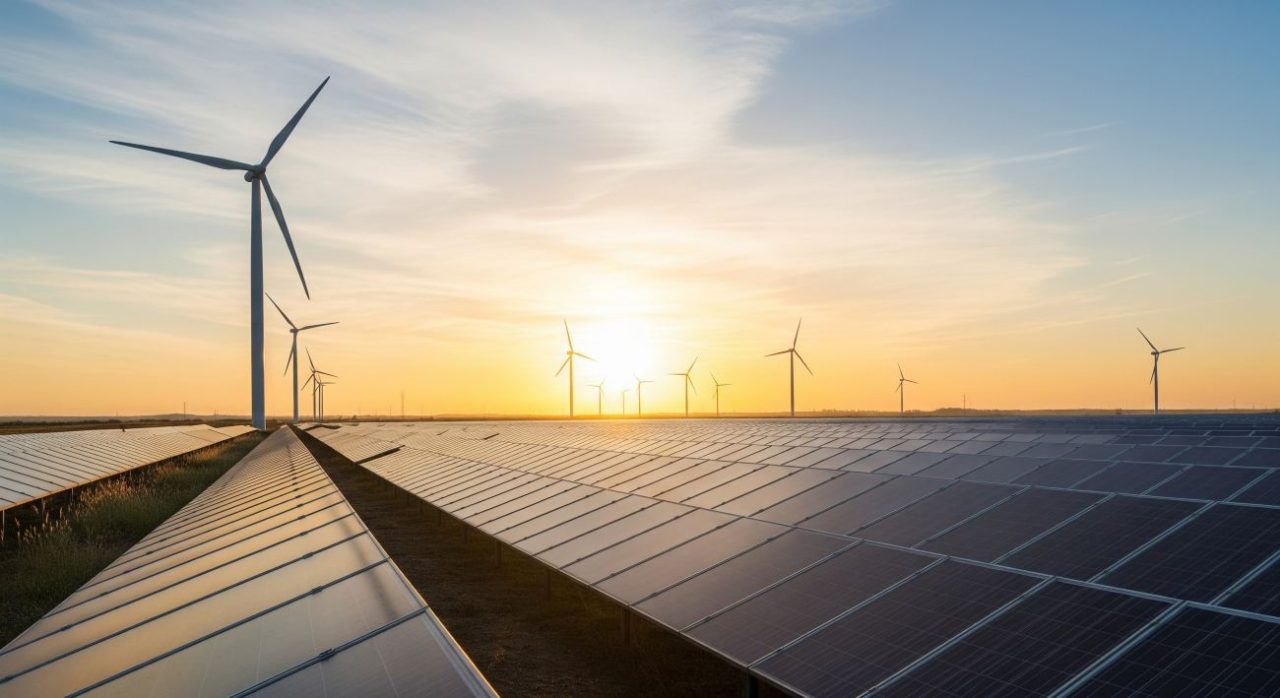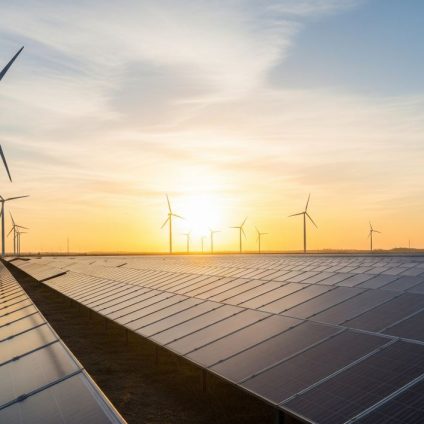According to IRENA, renewables were more cost-effective than fossil fuels in 91% of new capacity added in 2024, saving $467 billion globally.

Falling renewable energy costs reshape the global electricity market
The 2024 edition of the Renewable Power Generation Costs report by the International Renewable Energy Agency (IRENA) confirms it: renewable energy costs have become significantly more competitive. In 91% of newly commissioned renewable capacity, the cost of electricity was lower than that of the cheapest fossil fuel alternative. This shift led to a global savings of $467 billion in fossil fuel expenditures.
A milestone that strengthens the central role of renewables in the energy transition, not only for their environmental benefits, but increasingly for their economic edge.
Renewable energy costs by technology: 2024 figures
In 2024, onshore wind remained the most affordable source of new electricity generation, with a global average levelized cost of electricity (LCOE) of $0.034/kWh. Solar photovoltaics followed at $0.043/kWh, and hydropower averaged $0.057/kWh. Other technologies showed higher costs: concentrated solar power (CSP) dropped to $0.086/kWh, geothermal reached $0.066/kWh, offshore wind stood at $0.081/kWh, and bioenergy averaged $0.089/kWh.
The report also recorded a decrease in total installed costs (TIC): $691/kW for solar, $1,041/kW for onshore wind, and a stable $2,852/kW for offshore wind. CSP, geothermal, and hydropower showed greater cost variability depending on project scale and location.
Barriers to achieving full cost benefits
Despite the strong progress, IRENA warns of risks that could slow the continued decline in renewable energy costs. Geopolitical tensions, tariffs on critical materials and components, supply bottlenecks, and permitting delays are among the key threats.
In Europe and North America, grid constraints and high balancing costs are adding further pressure. In Africa, although onshore wind costs are comparable to those in Europe ($0.052/kWh), financing costs remain high, with interest rates often exceeding 12%.
“New renewables are more competitive than fossil fuels,” said IRENA Director-General Francesco La Camera. “They offer a clear path to affordable, secure, and sustainable energy. But this progress is not guaranteed. Rising geopolitical tensions, trade tariffs, and material supply issues threaten to reverse momentum and raise costs.”
Innovation and storage boost competitiveness
Enabling technologies continue to play a vital role. Between 2010 and 2024, utility-scale battery storage costs plummeted 93%, falling from $2,571 to $192 per kWh. Hybrid projects that combine solar, wind, and storage are expanding rapidly, while digitalization and artificial intelligence are optimizing system performance and enhancing grid flexibility.
However, in emerging economies, poor digital infrastructure and outdated grid systems are slowing down renewable energy integration, hindering balanced global growth.
Regional disparities in renewable energy costs
IRENA’s report highlights significant regional differences. In China and Brazil, onshore wind costs dropped to $0.029 and $0.030 per kWh respectively, well below the global average. India and China also led in solar PV costs, with rates of $0.038 and $0.033 per kWh.
Asia recorded an average offshore wind LCOE of $0.078/kWh, slightly lower than Europe’s $0.080/kWh. These numbers reflect the advantages of economies of scale, market maturity, and favorable financing conditions.
Outlook to 2030
Forecasts for the next five years point to continued cost reductions. IRENA projects that global TIC could fall to $388/kW for solar, $861/kW for onshore wind, and $2,316/kW for offshore wind. Maintaining efficient supply chains, stable policies, and access to affordable capital will be critical to sustaining this trend.
Still, IRENA urges caution: “To safeguard the gains of the energy transition, we must reinforce international cooperation, ensure open and resilient supply chains, and build stable policy and investment frameworks, especially in the Global South.”
UN Secretary-General António Guterres echoed the message: “Clean energy is the smart economic choice, and the world is following the money. Renewables are surging, the fossil fuel era is collapsing. But leaders must remove barriers, build trust, and unlock finance and investment.”













